Kong API Gateway
Posted By : Md Amir Ali | 24-Jun-2022
A few points about the Kong API Gateway:
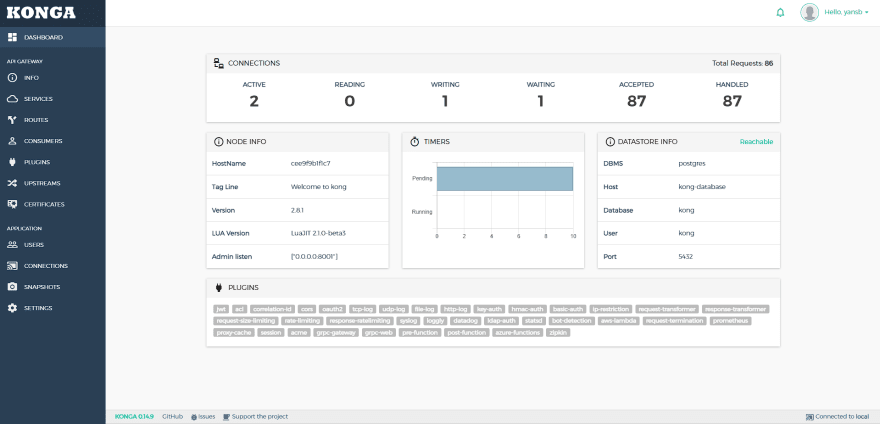
- It is fully Open Source
- Flexible Deployment
- Extensible via Plugins
- API GatewayMicro Gateway features i.e. it does not provide settings for lifecycle controls
Deployment Models:
Kong has 3 deployment models
DB-Less:
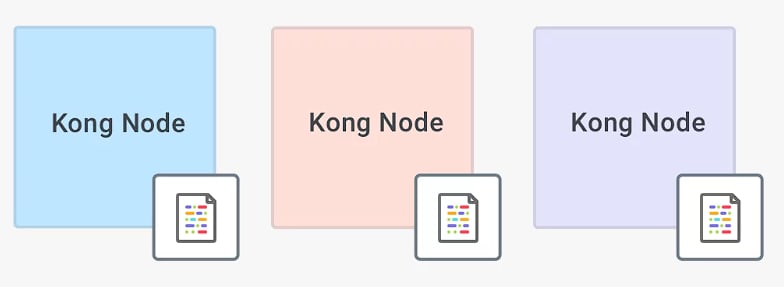
Need to configure it through a Yaml or JSON file and upload it based on the file, when it uploads this configuration it will be loaded in the memory of each Kong node.
With Data Damage:
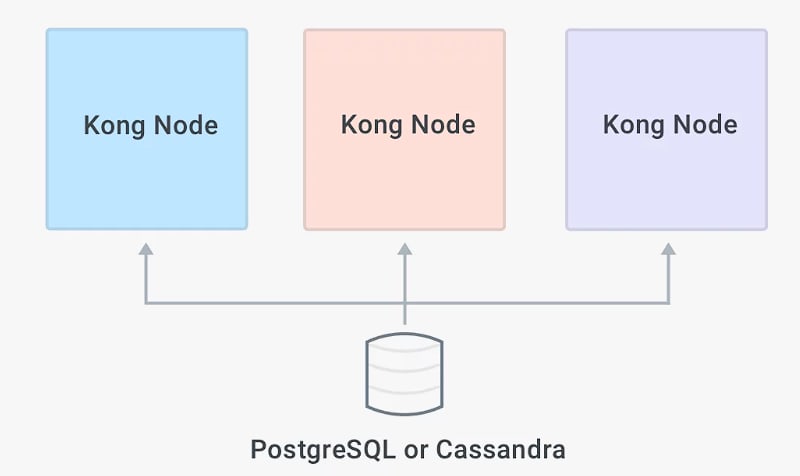
The settings are all in a database shared by all nodes. One of the nodes will act as a control plane and pass the settings to Postgres which it passes to the other nodes.
Hybrid:
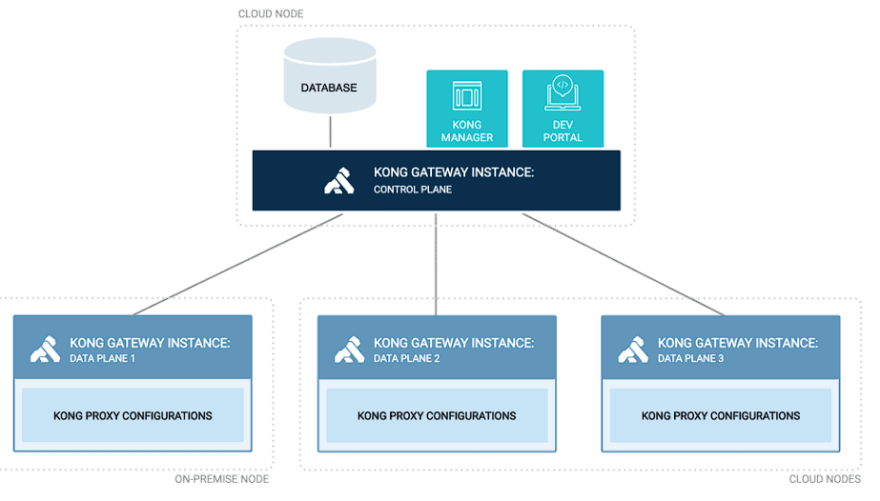
The hybrid deployment model is the model recommended by the Kong team, the idea is to have a control plane that only it will access the database, unlike the database deploy where all instances have access to the database. In this hybrid model, the other nodes will always receive the control-plane settings.
Services of Konga API Gateway:
A service is an entity that represents an upstream API or microservice. For example, a payment or registration microservice, etc.
Routes:
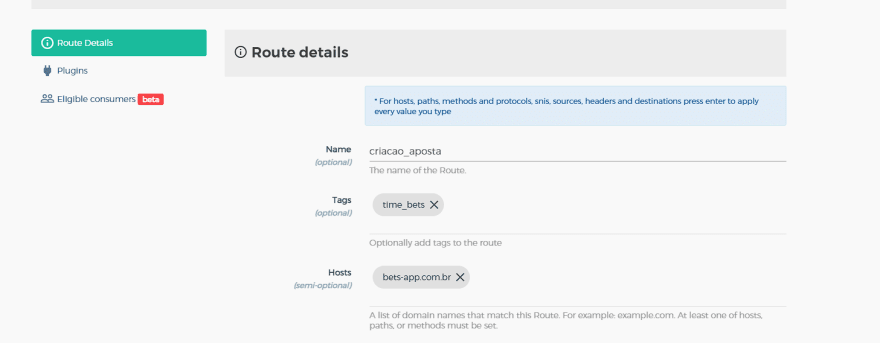
The routes are the URL paths that allow a service registered in our API Gateway to be accessed through the gateway. To register a route we have to go inside the registered service and go to the "Routes" option when we create a route we can define some settings one of them being the Host
Plugins:

Plugins are a piece of code that can be executed within the lifecycle of an HTTP request, both in the request and in the response, in other Gateways, this can be found as a policy but in Kong, it is called a plugin. Plugins can be configured in Routes, Services, Consumers and Globally, takes precedence for settings
this is the order of precedence, the lower the higher priority
Consumers:
It is who can consume your API, to test this part, I created two consumers, one that is a user and an app
Cookies are important to the proper functioning of a site. To improve your experience, we use cookies to remember log-in details and provide secure log-in, collect statistics to optimize site functionality, and deliver content tailored to your interests. Click Agree and Proceed to accept cookies and go directly to the site or click on View Cookie Settings to see detailed descriptions of the types of cookies and choose whether to accept certain cookies while on the site.










About Author
Md Amir Ali
Amir is an experienced DevOps professional who has expertise in implementing DevOps practices and tools for optimizing workflows and reducing operational costs. He has a strong background in Linux system administration and is skilled in working with Ubuntu, CentOS, and RHEL. He also has experience in database management. Amir has worked on several projects, including Oodles Marketing, Studio, Sonar-Jenkins, Disaster Recovery, and Rollback setup, collaborating effectively with cross-functional teams. He is proficient in DevOps tools such as Docker, Kubernetes, Jenkins, SonarQube, Ansible, Terraform, virtualization using Proxmox VE, and scripting with Bash and Python.